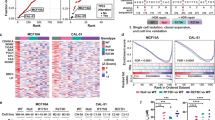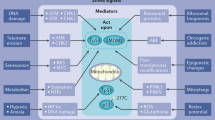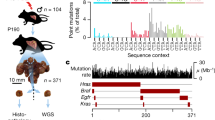Abstract
Using a plasmid substrate which integrates into the genome, we determined that the rate of homologous recombination was suppressed by p53. Human tumor cell lines, mutant or null for p53 had recombination rates 10 000-times greater than primary fibroblasts. When isogenic cell pairs from tumor cells or primary fibroblasts were compared, differing only in one genetic change which inactivated p53, the recombination rate increased >100-fold. Functional inactivation of p53 by dominant mutant p53, by large T antigen of SV40 virus, by E6 protein of human papilloma virus, or by genetic deletion led to the same result. Our results suggest that p53 suppresses spontaneous homologous recombination, and that p53 is not required for recombination to proceed. The mechanism of recombination suppression may be related to the reported association of p53 with Rad 51, but the functional consequences of this association are not yet established. It is suggested that suppression of homologous recombination is the means by which p53 maintains genetic stability.
This is a preview of subscription content, access via your institution
Access options
Subscribe to this journal
Receive 50 print issues and online access
$259.00 per year
only $5.18 per issue
Buy this article
- Purchase on Springer Link
- Instant access to full article PDF
Prices may be subject to local taxes which are calculated during checkout
Similar content being viewed by others
Author information
Authors and Affiliations
Rights and permissions
About this article
Cite this article
Mekeel, K., Tang, W., Kachnic, L. et al. Inactivation of p53 results in high rates of homologous recombination. Oncogene 14, 1847–1857 (1997). https://doi.org/10.1038/sj.onc.1201143
Received:
Revised:
Accepted:
Issue Date:
DOI: https://doi.org/10.1038/sj.onc.1201143
Keywords
This article is cited by
-
MEN1 deficiency leads to neuroendocrine differentiation of lung cancer and disrupts the DNA damage response
Nature Communications (2020)
-
Triapine potentiates platinum-based combination therapy by disruption of homologous recombination repair
British Journal of Cancer (2016)
-
p53 isoform Δ113p53/Δ133p53 promotes DNA double-strand break repair to protect cell from death and senescence in response to DNA damage
Cell Research (2015)
-
p53 modulates homologous recombination at I-SceI-induced double-strand breaks through cell-cycle regulation
Oncogene (2013)
-
Expression of RAD51, BRCA1 and P53 does not correlate with cellular radiosensitivity of normal human fibroblasts
Irish Journal of Medical Science (2011)



